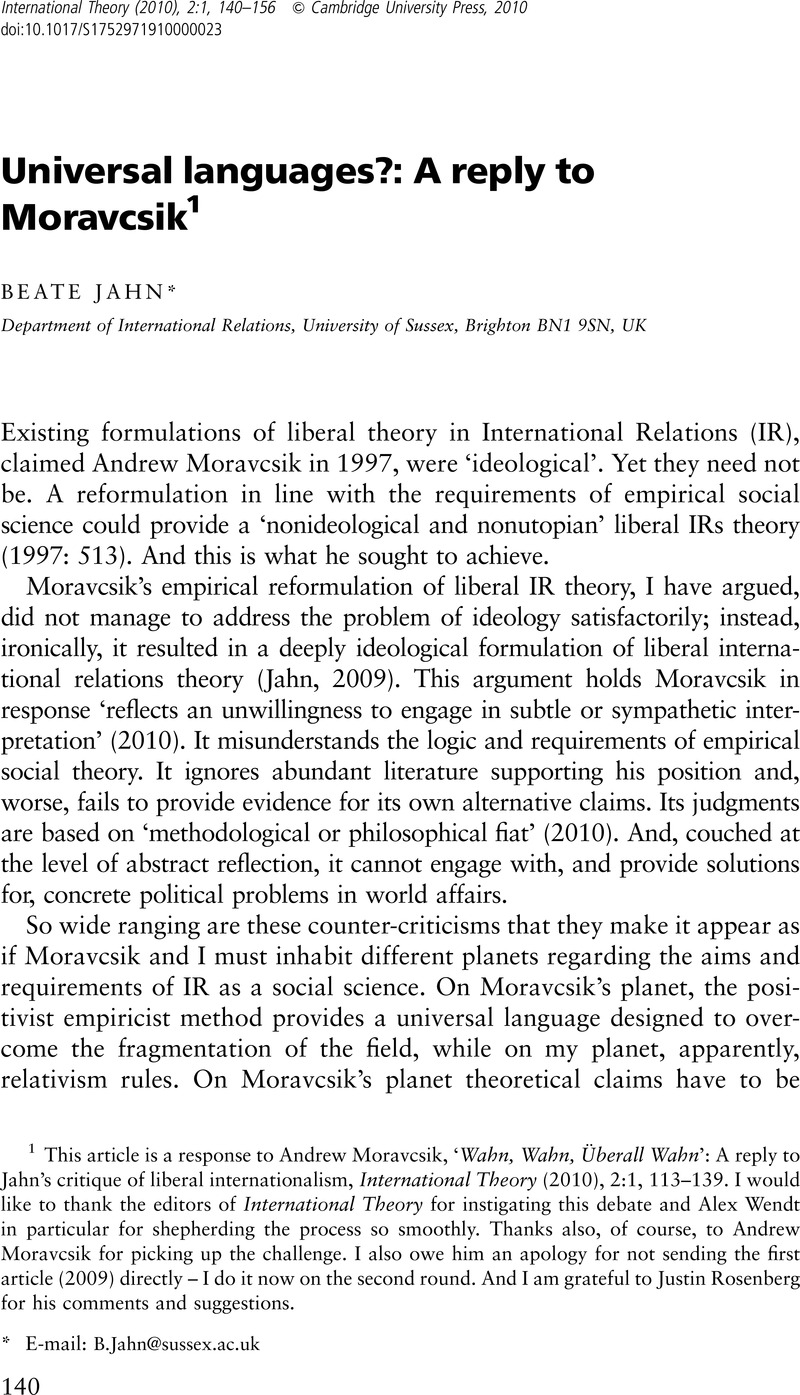Article contents
Universal languages?: A reply to Moravcsik1
Published online by Cambridge University Press: 01 March 2010
Abstract

- Type
- Correspondence: Is Liberal IR Theory Ideological?
- Information
- Copyright
- Copyright © Cambridge University Press 2010
Footnotes
This article is a response to Andrew Moravcsik, ‘Wahn, Wahn, Überall Wahn’: A reply to Jahn’s critique of liberal internationalism, International Theory (2010), 2:1, 113–139. I would like to thank the editors of International Theory for instigating this debate and Alex Wendt in particular for shepherding the process so smoothly. Thanks also, of course, to Andrew Moravcsik for picking up the challenge. I also owe him an apology for not sending the first article (2009) directly – I do it now on the second round. And I am grateful to Justin Rosenberg for his comments and suggestions.
References
- 5
- Cited by




